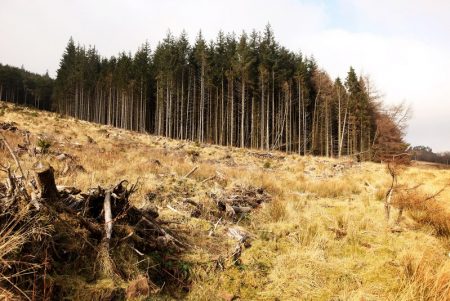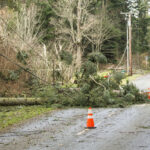July 25, 2018 – On Monday this week, New Zealand’s News Now reported that the government’s Ministry for Primary Industries has recommended that the industry stop cutting timber particularly on steep inclines as both a safety and carbon sequestration measure. The Ministry has also asked the industry to plant different species of trees to create forest diversity after clear-cutting sections of the forest licensed to lumber companies. The industry currently is facing deforestation liability based on current practices at $20 per ton of carbon dioxide (CO2) released into the atmosphere, amounting to 800 tons per hectare and a $16,000 charge. Of course, the lumber industry is pushing back at the government stating that differentiating reforestation growth is uneconomic particularly with current prices for its products. And the addition of the liability charges for releasing CO2 into the atmosphere is bound to further impact existing operators who may find it cost prohibitive to continue to operate. The New Zealand government argues that cutting hillside forests is not just a carbon issue, but also a safety issue. Hillsides left bare are a danger to the public because of erosion, and potential landslides.
Could New Zealand have gone about its recommendations in a different way? Back in 2009 Norway and Guyana came up with a mutually beneficial arrangement to reduce CO2 emissions from deforestation. Norway agreed to pay Guyana to stop cutting down its trees. For Guyana, it meant a cash infusion to help alleviate poverty in the country. For Norway, the payment to keep Guyana’s forests whole offset the CO2 output from the Scandinavian country’s oil industry. The Norway-Guyana model, critics point out, puts the burden of emission-cutting on the backs of Guyanese while giving Norwegians permission to continue to pollute.
Nevertheless, there is merit in getting those in the lumber and pulp and paper industry to look at far more sustainable practices that also mitigate climate change. Whether we are talking about boreal or tropical forests, trees when cut down release significant amounts of CO2 into the atmosphere. Today tropical deforestation alone contributes about 10% of greenhouse gas emissions according to the Union of Concerned Scientists. That’s 3.0 Gigatons of CO2 annually.
Figures for boreal forest deforestation show that in Canada alone, clear-cutting creates 26 million tons of CO2 annually, equivalent to the total emissions of 5.5 million vehicles per year. Boreal forest logging operations do more than just emit CO2 from the felled trees. The practice of clear-cutting damages soils, and wetlands including peat deposits which release methane (CH4), a far more potent greenhouse gas. Russia, the other country containing 19% of the planet’s forest cover, is in the same boat as Canada with unsustainable forest harvesting practices contributing to atmospheric warming through carbon emissions.
So maybe the idea behind New Zealand’s recommendation to have its forest industry stop cutting trees in wholesale fashion could be monetized so that lumber companies receive payments for not cutting their forest reserves. If Norway can pay Guyana not to cut its trees, then why can’t governments find a formula based on net carbon emission reductions that will allow the industry to continue to harvest wood, and pulp and paper in sustainable ways while receiving compensation for forest conservancy?
I would love to hear from readers of this posting particularly those within the industry and in government who have further thoughts on the subject.
















